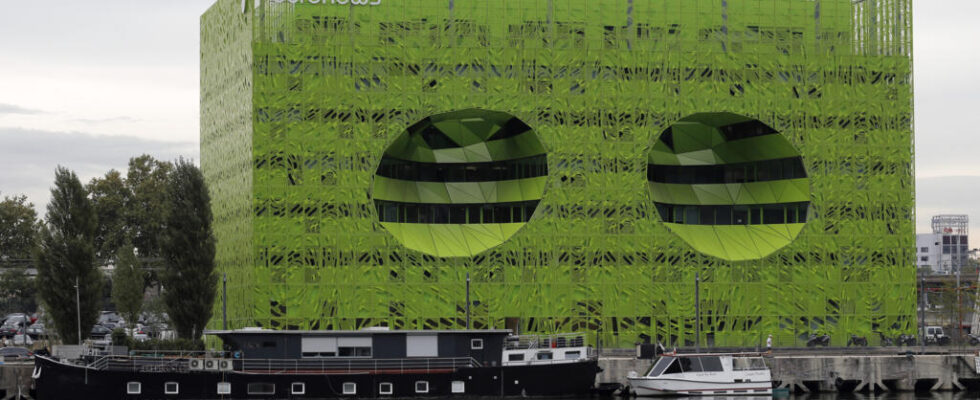What future for the Euronews channel, which has just announced the elimination of 200 positions in Lyon, or nearly half of its workforce?
It’s a bit of a European dream that will disappear, that of a beehive, a tower of Babel on the scale of a continent, in a district of Lyon that bears its name so well: “Confluence”. Confluence was what prompted Euronews to establish itself in the heart of Europe 30 years ago, to make all voices heard, all languages, without, moreover, showing all the faces, because the journalists of this channel are rather behind their subjects than in front of the camera.
A plummeting European subsidy
Only, little by little, Euronews has been the victim of a deep, haunting crisis: fewer and fewer European subsidies, an advertising model to be reinvented in the face of digital, and a European identity a little in search of itself. Result, Euronews would have been profitable ten years, but it would have accumulated 180 million euros of losses since its creation, including 150 million during the last ten years. This is what justifies, according to its management, the elimination of 200 positions out of the 400 in France, through a third social plan. Ten years ago, there were still 800 employees.
So there will still be 140 people in Lyon, but by the end of next year, they will have to have left their futuristic green seat, signed Jakob & Farlane, which is on sale. At the price per square meter in the district, the owner fund can expect 60 million euros. Not bad for a channel that is losing 20 million.
► To listen also: The reluctance of the “Global South” on the war in Ukraine
Subsidiary body of the European Commission?
Thus, the confluence of 30 nationalities in a multilingual cube is well and truly over. Only the Russian, Turkish and Iranian editorial staff will remain for security reasons. For the rest, it is planned to create six offices in European capitals and a central editorial office in Brussels. There will be 70 employees, eventually 100, with one obsession: to follow the brain of Europe. Inevitably, this is where the Commission sits, which is also the one that decides on the subsidy to Euronews. A subsidy which has fallen from 42 to 20 million euros in ten years and which will be reduced to 12 or 13 million next year, which will still be a quarter of the channel’s budget.
Hence a question: does Euronews not risk becoming “Brusselized”? In other words, to be a kind of subsidiary organ of the common house? The Alpac Capital fund, which bought the chain last year, said it wanted put Euronews at the center of the European debate », in a pro-European and pro-NATO vision. But it was then a question of making this medium attractive and, promised sworn, said his boss Pedros Vargas David, ” it’s impossible to do this with less people “. Let’s say he changed his mind.
► To listen also: Guy Verhofstadt, MEP, Renew Europe
